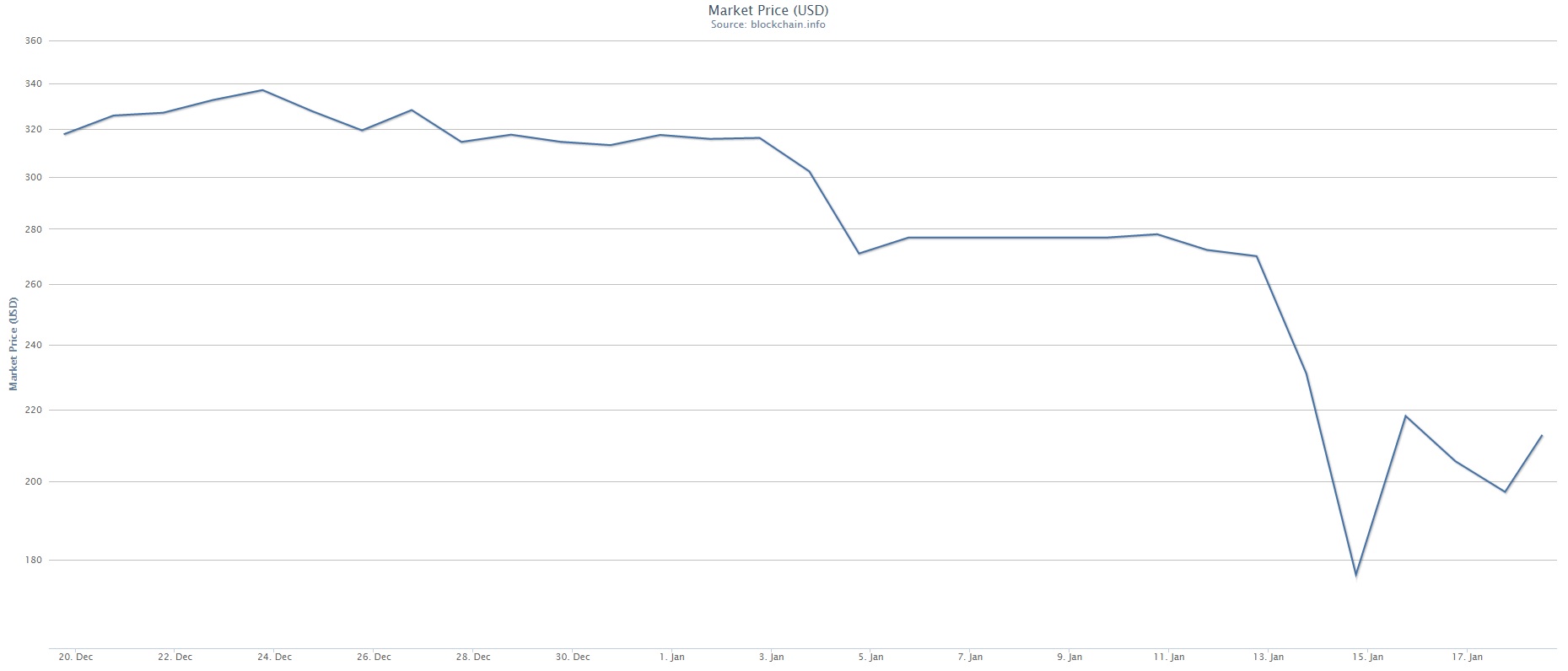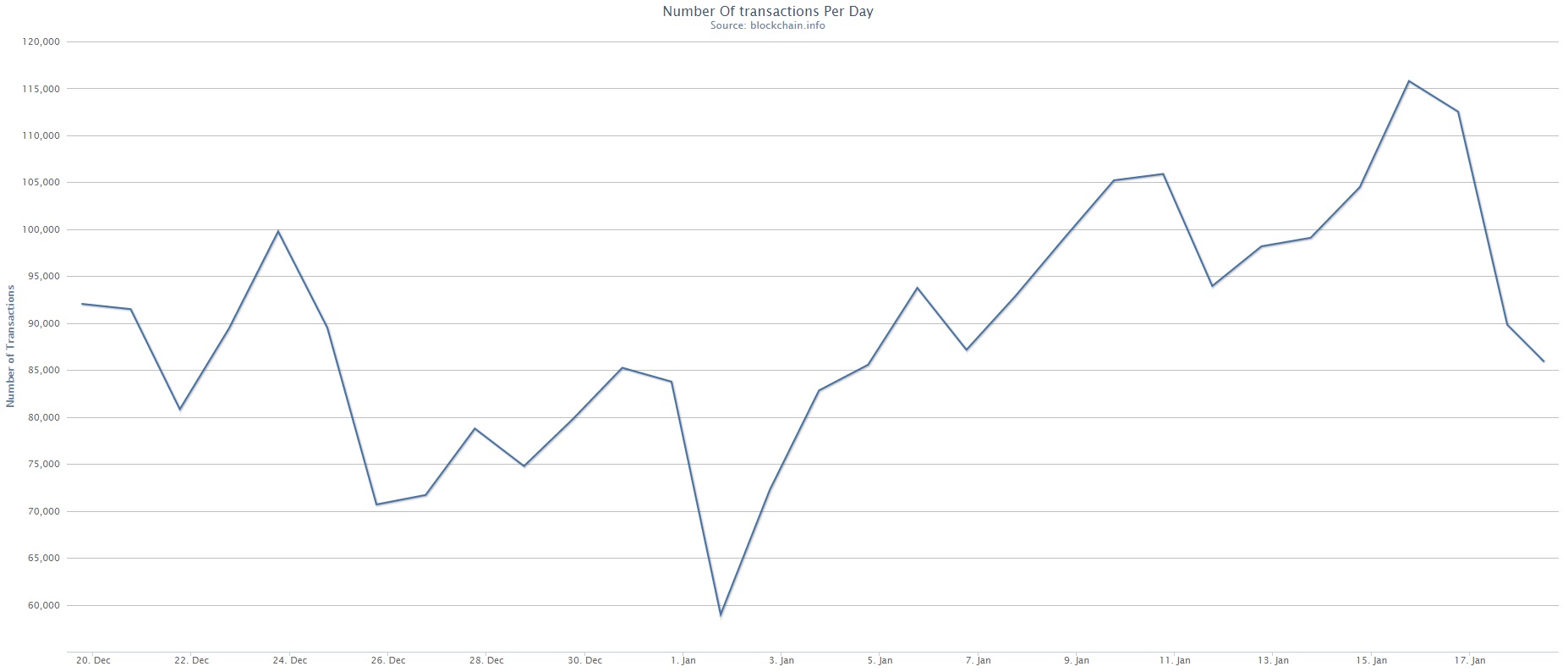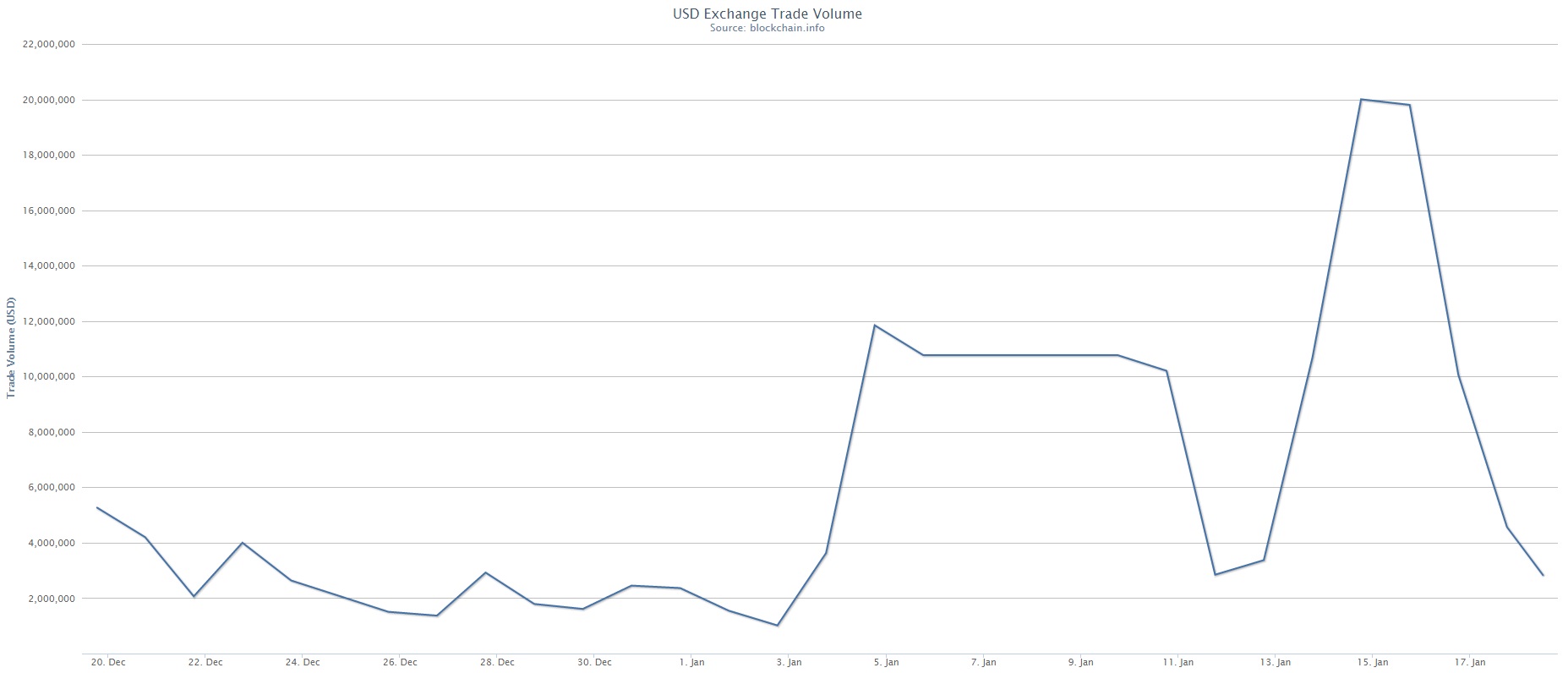1. Stunning Testimony at the Ross Ulbricht Trial
On Friday, Ian DeMartino reported on the witness testimony in Ross Ulbricht’s trial that ignited a storm of speculation and may have seeded some reasonable doubt among jurors.
“A Department of Homeland Security (DHS) agent, testifying for the defense of Ross Ulbricht in the Silk Road trial, stated that he believed Mark Karpeles was the true leader of the Silk Road. …
“According to Wired and other media outlets, DHS agent Deryeghiayan testified that he was investigating Karpeles in 2012 and 2013 as the leader of the Silk Road. The agent also contends that Karpeles, or at least his company, was in control of thesilkroad.org domain name and that they purchased it to increase the underground site's visibility in order to boost Bitcoin's price.”
2. BitHalo Releases Decentralized Escrow Client v2.1 to Rival PayPal, Western Union
On Monday, Diana Ngo reported on BitHalo’s new Advanced Payment escrow feature.
“The Advanced Payment feature is sent from a peer that wishes to contract or send a payment to another. After both parties agree on a password they will use for the pay-to-email transaction, the recipient receives an offer to the email address he/she had provided, followed by helpful instructions to fulfill the procedure and a download link to BitHalo.
“Upon opening the personal client attributed to the provided email address, the user will have an option to enter the said password and then receive the bitcoin payment.”
3. South Koreans Can Now Buy Bitcoin from 7–Eleven
On Thursday, William Suberg reported on a system that would allow anyone to purchase bitcoins at 7-Elevens in South Korea as either printed receipts or cards.
“[A source who] works for Coinplug and verified that it is possible to buy bitcoins through a pin code in the form of a receipt in every Korean 7-Eleven store. He said the cashiers will be trained on the procedure over time, and that eventually Coinplug will issue and distribute the actual cards.”
4. UK May Attempt to End Anonymity in Bitcoin Transactions
On Tuesday, Charlie Richards reported on proposed efforts in the UK to give officials the legal grounds to crack encrypted content in the name of democracy.
“Comparing the accessing of content sent through encrypted services to the reading of letters and tapping of phone calls that are already permitted under UK law, Cameron admitted the collection of this data was ‘contentious,’ but argued this was ‘absolutely right for a modern liberal democracy.’”
5. Russian Authorities Blacklist 5 Bitcoin-Related Websites
Also on Tuesday, Allen Scott reported that the Russian government was blocking access to specific Bitcoin websites.
“The reason for why these specific websites (and not others) were targeted has not yet been revealed. The popular Bitcoin.org website contains information on the benefits of Bitcoin (and cryptocurrencies as a whole) and methods for using the cryptocurrency by both individuals and companies, including links to the other related online communities.
“Thus, the move was not entirely unexpected, as Cointelegraph reported back in August that the Russian government was planning to clamp down and ‘restrict access to information sources, which produce Bitcoin and carry operations with their use, with the establishment of appropriate administrative sanctions.’”
Elsewhere
- Kudos to Kari Paul, Kaleigh Rogers and Jason Koebler over at Vice for their ongoing coverage of the Ross Ulbricht trial.
- In case anyone missed Andreas Antonopoulos’ AMA on Thursday, here you go.
- Quartz reports that search engine DuckDuckGo’s traffic has been growing rapidly for the past few months. You can also check DuckDuckGo’s stats here.
Market activity



Last Sunday, the dollar price of one bitcoin was sitting at about US$270, which Tone Vays called “No Man’s Land” in his analysis on January 11.
This was Tone’s bearish scenario:
“The odds are slightly leaning to more pain in the near future. This could be starting tomorrow as the price drops under our US$255 floor or perhaps even a month from now but there is definitely no indication that we have hit the bottom. Once prices drop under the US$250-255 range, there is open air going down to the US$200-210 zone.”
Two days later, the bitcoin price had dipped into the US$170 range — even briefly trading at around US$150 — before rebounding at the end of the week to right around US$200.
That drop did spur increases in trade volume and the number of transactions. On Wednesday and Thursday, we saw exchange volume surpass the US$20 million mark for a day, something it hadn’t done since October 2014.
And the number of transactions broke through the 110,000 mark on Wednesday, a new high-water mark.
Did you enjoy this article? You may also be interested in reading these ones:
- Weekend Roundup: Bitstamp Troubles, Lighthouse Project Beta, and More Paycoin Controversy
- Weekend Roundup: Regulatory Messiness in US, Currency Crisis in Russia, and Time, Inc. Accepts Bitcoin
- Weekend Roundup: Microsoft Is In, Stolen BTC Returned to Blockchain.info, and Russia Goes After Cryptocurrencies Again
